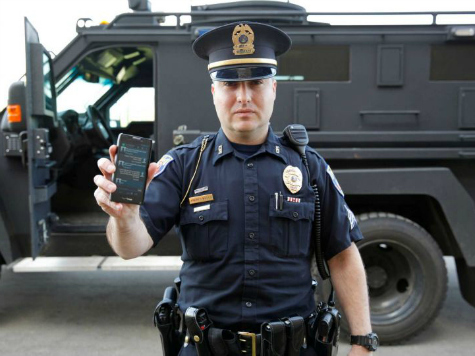
Police charged a Chicopee, Massachusetts, woman with “wiretapping” for daring to record her own arrest on her smartphone, a new report reveals.
On May 11 Springfield police confronted Karen Dziewit, 24, for drunk and disorderly conduct near 140 Chestnut Street in Chicopee.
Police charge that as they attempted to force the woman to quiet down and stop her disruptive behavior, she activated the voice recording feature on the cell phone in her purse and recorded the arrest.
The belligerent woman was arrested and, upon taking the inventory of her belongings back at the station, police discovered that the cell phone was actively recording.
Police promptly charged Dziewit with “wiretapping,” as well as disorderly conduct and for having open alcohol on the street.
Massachusetts is one of those states that require two-party consent for recordings – meaning those being recorded have to be told they are being recorded and have to agree to the action before it is legal to do so.
The woman was released on her own recognizance the next morning.
This is just another case in a growing body of law about recording police as they carry on their duties in public.
As these cases mount, police are increasingly ending up on the wrong side of the law for charging people with a crime for recording them in public. Even in Massachusetts, a recent lawsuit against police was won by a man who was charged with wiretapping when he recorded his own arrest.
The Supreme Court of the United States has also sided with citizens who record police in public. In 2012 the SCOTUS refused to uphold an Illinois ban on citizens recording police, a decision that left standing a lower court ruling that the ban violated free-speech rights.
By 2014, the Illinois Supreme Court also struck down the recording ban, unanimously overturning the law they said “criminalizes a wide range of innocent conduct.”
Several other states have also ruled that it is legal to record police as they carry out their duties in public.
Follow Warner Todd Huston on Twitter @warnerthuston or email the author at igcolonel@hotmail.com.

COMMENTS
Please let us know if you're having issues with commenting.